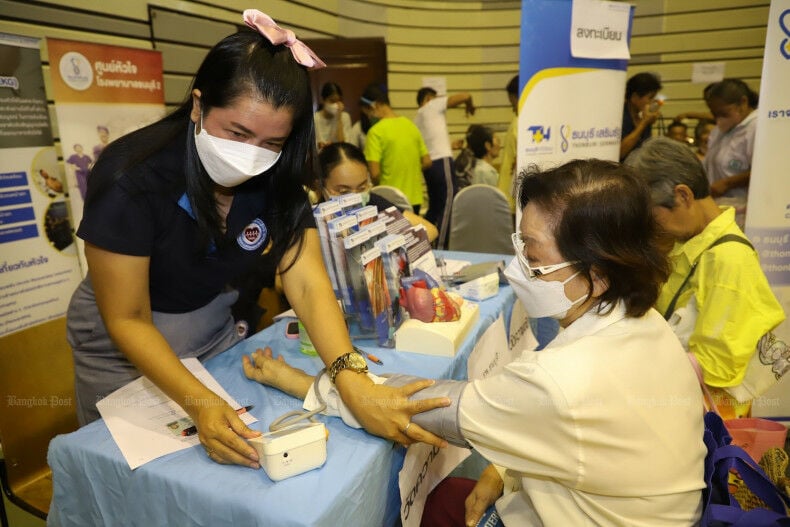Thailand faces ‘invisible time bomb’ population crisis

Thailand’s population crisis, described as an “invisible time bomb,” requires urgent government intervention, according to Varawut Silpa-archa, the Minister of Social Development and Human Security (MSDHS).
Varawut stated the following during a forum on national strategies hosted by the National Press Council of Thailand on Thursday, July 4.
“Environmental issues are visible, but this [population crisis] is an invisible time bomb. If it is not addressed, it will certainly cause problems within the next 10 years.”
Varawut highlighted the multifaceted challenges societies face today, including environmental issues, diseases, digital transformation, and demographic changes. He noted that these factors impact the economy, create political conflicts, and make social problems more complex and sensitive.
“No single policy can address these issues; collaboration among various sectors is required.”
Thailand is grappling with an ageing society and a declining birth rate.
“Thailand’s population has decreased by around 500,000 in the past four years. In about 20 to 25 years, it is forecast to drop from 66 million to 58 million. If not addressed, in about 50 to 60 years it will decline to just 33 million.”
Rapid changes in climate and technology are affecting daily lives, particularly for vulnerable groups such as children, the disabled, and the elderly, who constitute one-third of the population. The working-age population also faces increasing financial and caregiving burdens.
Varawut stressed the government’s duty to address these problems by identifying the root causes of why people do not want to have children.
Remedial plan
The MSDHS minister presented a plan dubbed “5×5 Let’s Turn the Tide” to tackle the issue. The plan aims to empower people of working age and prepare them for early retirement by enhancing their skills and financial management. It also seeks to improve the quality and productivity of children and older youths while empowering the elderly through better healthcare, active social engagement, and technology training.
People with disabilities will be provided with increased opportunities and value, focusing on independence rather than sympathy. Their skills will be enhanced to create an inclusive society that values productivity.
The plan is expected to create an ecosystem that ensures accessible education and transportation, addresses drug issues, protects the environment, and manages resources efficiently.
Varawut has also established the Human Security Emergency Management Centre under the Ministry of Social Development and Welfare, reachable at the 1300 hotline. The centre, which officially launched early this year, handles between 12,000 and 18,000 reports monthly, with over half concerning family issues and domestic violence, reported Bangkok Post.
“The family is the smallest unit of the community and Thai society, but it is the starting point for building a strong society.”
Latest Thailand News
Follow The Thaiger on Google News:


























